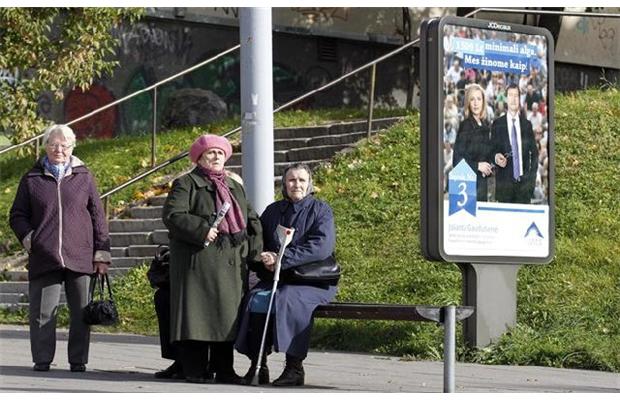Lithuanians have begun voting for a new parliament in a ballot seen in the wider EU as a test for austerity policies to tackle the economic crisis.
Opinion polls suggest the centre-right government will be punished for cutting pensions and public sector pay.
Under its leadership, the economy has rebounded but analysts say it is too soon for voters to feel the impact.
A centre-left government promising to raise wages and reduce taxes for the poor is expected to emerge.
Lithuania enjoyed an economic boom fuelled by cheap Scandinavian loans until the 2008 world financial crisis.
That crisis saw economic output drop by 15%, unemployment climb and thousands of young people in the Baltic nation of 3.3 million emigrate in search of work.
Under Prime Minister Andrius Kubilius’s coalition government, GDP grew by 5.8% last year – one of the fastest rates of any EU economy – and the budget deficit has been tamed.
The price was swingeing cuts to the extent that only every third street lamp in the capital Vilnius was allowed to be lit and fuel for police cars was rationed.
“They cut my pension,” a 72-year-old man selling souvenirs in the capital Vilnius told Reuters news agency.
“I have to keep working because otherwise I won’t be able to afford the rent on my apartment, or the electricity bills.”
Opinion polls suggest the Social Democrats under Algirdas Butkevicius will do best at the polls, followed by their potential coalition ally, the Labour Party.
Algirdas Butkevicius promises to raise the minimum wage, make the rich pay more tax and put back euro entry until 2015, a year later than scheduled.
By delaying euro entry he could run a bigger deficit than euro accession rules permit. Of the Baltic states which joined the EU, only Estonia has so far joined the eurozone.
Analysts say that if the centre-left win, economic factors will oblige them to stick largely to the existing austerity programme.
The parties of the left have also promised to improve the ex-Soviet state’s strained relations with Russia, still Lithuania’s biggest trade partner.
In addition to the parliamentary election, Lithuanians are voting in a non-binding referendum on building a new nuclear power station, a project which could reduce dependence on Russian energy supplies.
Just before the election, PM Andrius Kubilius announced a lawsuit against Russian gas monopoly Gazprom for 5 billion lita ($1.9 billion), alleging that it had overcharged for deliveries.
